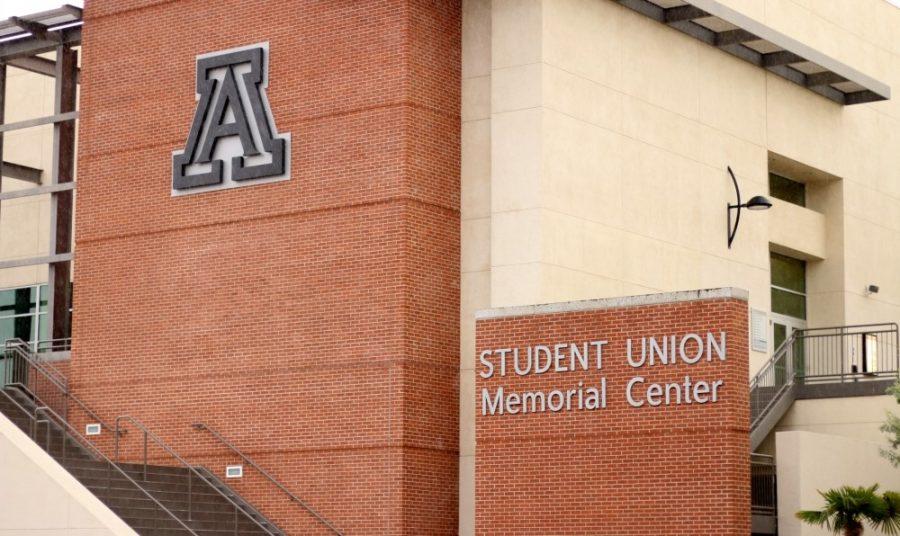Arizonans may have seen a growth in their pay because of the passing of Proposition 206, which increased the minimum wage to $10. For some people this went into effect on Jan. 1, however, for Arizona Student Unions’ employees and other campus departments, their raise won’t come until July 3.
On Dec. 2, UA Human Resources Department said they believe they were taking a fiscally responsible approach to the situation on their website.
“I used to work for the union and I know that it’s hard and a lot of work,” said Eden Eaton, a senior studying information science, technology and arts. “It’s convenient to work there but they’re not even paying minimum wage, so that takes away that good side of it. If you can make more somewhere close by, why even bother working for the UA?”
Thomas McDonald, chief of staff for UA Human Resources, said the student union isn’t necessarily benefiting from the delay, but is instead preventing students from being detrimentally affected.
RELATED: UA student employees weigh-in on Prop 206
“It gives us a time for departments to build the increase into their budget,” McDonald said. “Let’s say you have 100 students and then you have to give an increase. Now you can only afford 98 students, you’re gonna have to let two students go if we had essentially decided to move it before the next fiscal year.”
Because the university is a state agency, they are exempt from following the propositions regulation.
According to the UA human resources website, the university recognizes that increasing wages will give them a comparative advantage in attracting and retaining valuable employees, therefore they are committed to raising it in the future.

“Well at this time the decision doesn’t impact university employees because it exempts state employees,” said Sarah Harper, vice president of communications for the Arizona Board of Regents.
Harper said that implementing the raise would affect many positions on campus—the majority being student workers.
Around 22,000 student workers and 2,000 staff positions at the UA would be subject to the increase in pay, according to Harper.
She said the financial impact of the raise in minimum wage remains under evaluation, and if fully implemented, estimates say the direct costs would be over $26 million for UA.
“I am sympathetic to small business owners that may have a hard time dealing with the raise, but I feel like the school can deal with it considering the amount of funds they have coming in,” said Kevin Brinkman, a Scented Leaf employee and biomedical engineer senior.
“I don’t know what would delay the school, and hopefully they have good reasons for it, but its seems like such a big institution would want to stay within the federal rules and help students with living wages,” he said.
RELATED: Arizona votes ‘yes’ on Prop. 206 to raise higher minimum wage
Lauren Hammelev, an accounting senior, said she heard about the delay from her friend who was upset about the decision.
“She was upset, but surprisingly, she didn’t mind, because of how convenient her job is,” Hammelev said.
She said she thought the lesser pay might deter some student workers, but despite that, the convenience factor may prevent students from quitting.
“They’ll either lose workers to other places paying minimum wage or their quality of workers will decrease because people who may not need the money will be the only ones sticking around,” Brinkman said.

Jesse Scott, a Scoop employee and UA sophomore studying biochemistry and molecular and cellular biology, said the delay has caused him to seek new employment off-campus.
“I think it’s causing a lot of people to feel disappointed because they feel they are being underpaid compared to people who are getting paid more to do the same job,” Scott said.
Eaton said she felt the decision has caused anger in employees and is certain many are troubled because some students are paying for living and school expenses.
“They won’t be helped out by the decision; the student union should want to help them,” Eaton said.
Workers will not see the new rate applied to their paychecks until July 21.
The increase of pay for employees already at or above the $10 per hour will be a local decision, according to the human resources website, and determined by departments if the funds are available and if they wish to adjust salaries. Proposition 206 calls for the minimum wage to be adjusted to $10.50 in 2018; $11.00 in 2019 and $12.00 in 2020.
The student union has not confirmed they will be following those guidelines in the future and as stated on their website, announcements about additional adjustments will be made at a later date by the university.
Follow Angela Martinez on Twitter.









